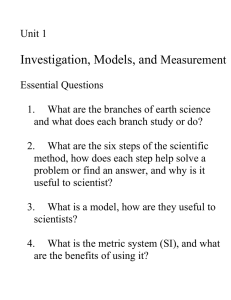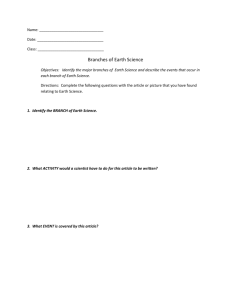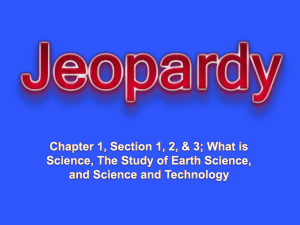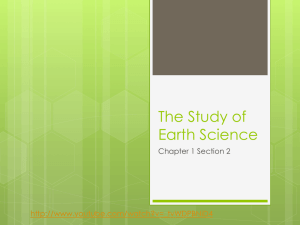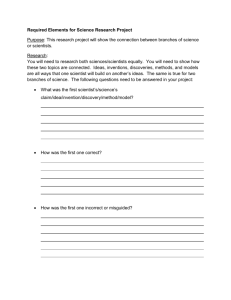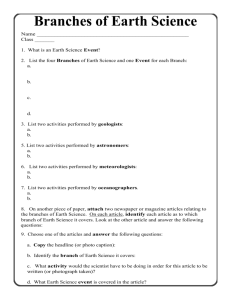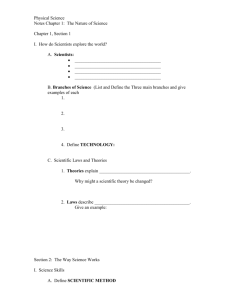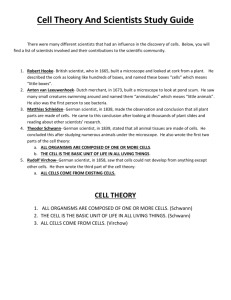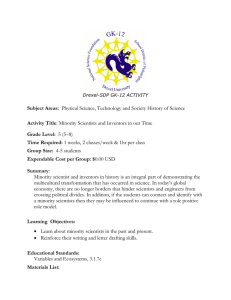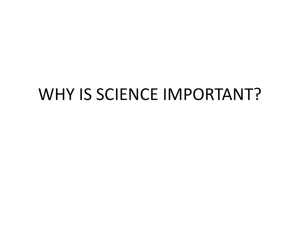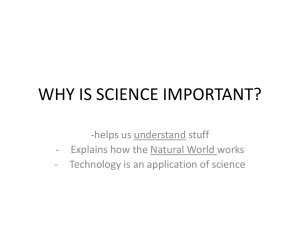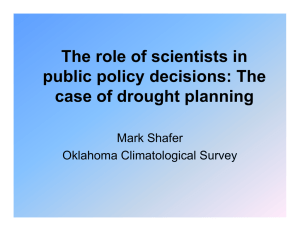Branches of Science
advertisement
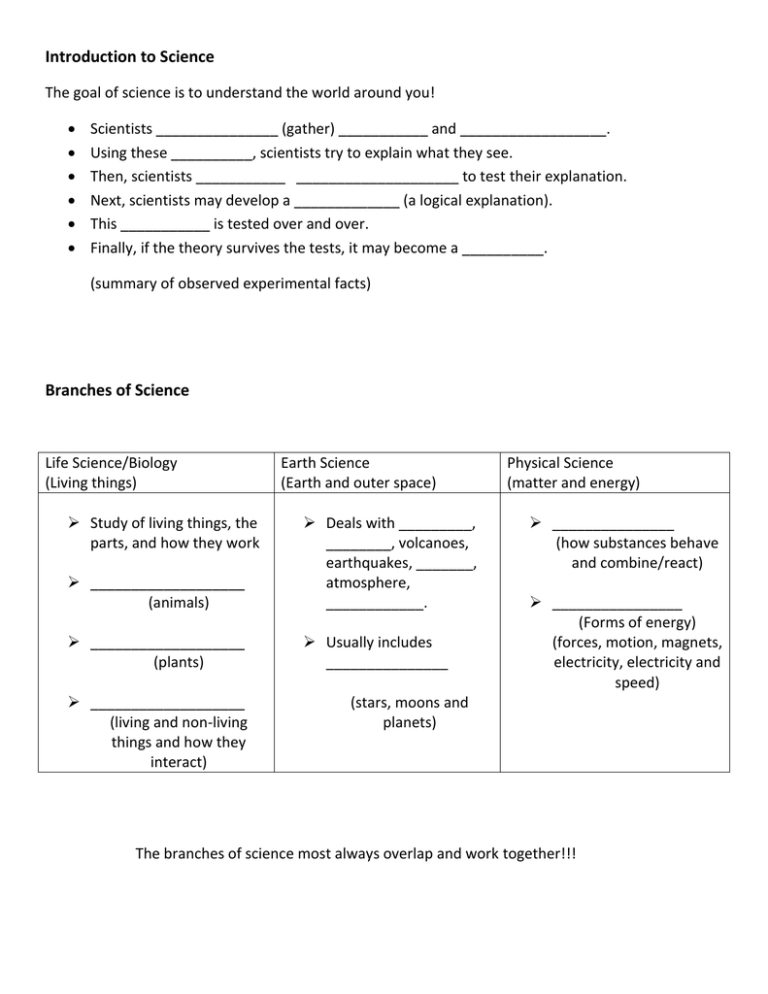
Introduction to Science The goal of science is to understand the world around you! Scientists _______________ (gather) ___________ and __________________. Using these __________, scientists try to explain what they see. Then, scientists ___________ ____________________ to test their explanation. Next, scientists may develop a _____________ (a logical explanation). This ___________ is tested over and over. Finally, if the theory survives the tests, it may become a __________. (summary of observed experimental facts) Branches of Science Life Science/Biology (Living things) Study of living things, the parts, and how they work Earth Science (Earth and outer space) ___________________ (animals) Deals with _________, ________, volcanoes, earthquakes, _______, atmosphere, ____________. ___________________ (plants) Usually includes _______________ ___________________ (living and non-living things and how they interact) Physical Science (matter and energy) _______________ (how substances behave and combine/react) ________________ (Forms of energy) (forces, motion, magnets, electricity, electricity and speed) (stars, moons and planets) The branches of science most always overlap and work together!!! Name:________________________________________ Date:________________________ Science-Chpt 1 Sect 1:3 Branches of Science Directions: Decide whether each of the following questions would most likely be studied by a life scientist (LS), an earth scientist (ES), or a physical scientist (PS). Write the correct abbreviation in the space before each item. You can use your notes. DON’T ANSWER THE QUESTIONS!!!!!!!!!!!!!!!! _______ 1. What are the characteristics of Jupiter’s moons? _______ 2. What causes a firecracker to explode? _______ 3. What are some of the most important characteristics of snakes? _______ 4. How do sedimentary rocks form? _______ 5. What causes earthquakes? _______ 6. How is a crab similar to a spider? _______ 7. Why does silver tarnish (change color)? _______ 8. How much force is needed to stop a car traveling 90km/hr? _______ 9. Which elements have properties similar to those of chlorine? _______ 10. How does temperature and pressure of ocean water change with depth? _______ 11. How do fronts and air masses affect weather patterns in an area? _______ 12. How does a battery produce an electrical current? _______ 13. How do different environmental factors produce various kinds of soil? _______ 14. What type of acid is found in orange juice? _______ 15. How are viruses different from bacteria?
